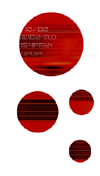

 |
 |
scientific program electroacoustic musics around set theory music analysis tools musicnetwork workshop professional week ircam forum workshops free software for music international multichannel sound forum performing arts and technologies dance and new technologies access to sound heritage thematic evenings demonstration stands artistic program set theory concert music in creation concert cursus concerts opera "one" sound installations open house weekend technologies gallery conferences demonstrations workshop-performances workshops and films ircam laboratories linux install-party concert distribution on internet associated events resonances night at glaz'art émilie simon at la cigale suguru goto reseaunances guided tours of ircam and the multimedia library resonances in pictures resonances 2002 
|
AROUND SET THEORYA French/American Musicological Meeting
**This registration allows you to participate to the "Electroacoustic Musics" Conference. Within the panorama of contemporary music-analytical disciplines, Set Theory is without doubt the one that most clearly reveals the profound differences between the American and European musicological traditions. Born from the work of one of the most original composer and theorist of the 20th century, Milton Babbitt, Set Theory has gradually become the dominant paradigm in the United States for the analysis of a certain type of contemporary music, and more particularly for the analysis of the atonal work of the second Viennese School (Schoenberg, Berg, Webern). Recent developments within the discipline, most notably the extension of its original formulation by Allen Forte to the "transformational" one developed by David Lewin, tend to suggest a widening of its domain of application to other parameters besides pitch (e.g. rhythm and timbre) and to other types of works within the contemporary repertoire. Despite the wealth of publications emanating from universities and research centers in North America, this type of approach has been generally met with skepticism on the part of the French, and more generally of European musicologists, and has remained often poorly understood in its basic principles. Paradoxically, if one examines the history of the use of mathematical concepts in music theory and analysis during the 20th century, one finds many examples of theoretical approaches that originated in Europe and that are very close to the ones developed in the United States. The French Society of Music Analysis, keen on promoting opportunities to discuss the most prominent theories had invited Allen Forte as well as Célestin Deliège to a debate within the first European Music Analysis Congress that was held in Colmar, France, in 1989. A series of articles published in the Revue Analyse Musicale, had followed this first meeting. The symposium at Ircam proposes to examine American Set Theory from a wide perspective so as to include formal approaches to musical structures suggested by theorists - composers such as Iannis Xenakis, Milton Babbitt and Anatol Vieru and other 20th Century Composers and Theorists as well as recent applications of mathematical tools to analysis and to computer assisted composition. Bringing together some of the greatest specialists in the field, the symposium will be a remarkable occasion to examine the history and to debate the current developments of a theoretical approach with compositional as well as mathematical ramifications that are far from being exhausted. Music theorists, musicologists, analysts, composers and mathematicians, coming from sometimes widely contrasting cultural and geographic backgrounds, will engage each other in a debate that aims at examining the scope, stakes and limits of the computational form of musicology of which American Set theory represents one of the most remarkable example in the 20th century. A Babbitt Forum will also be an opportunity to examine the theoretical as well as musical work of a composer who has had a tremendous influence on North American contemporary music while remaining at the outskirt of European musical life. A concert, featuring works that have influenced or have been influenced by Set Theory (Messiaen, Xenakis, Babbitt...), will constitute yet another key event of a symposium that hopes to set the basis for a possible dialogue between the always very active American tradition and a new trend in French and European Musicology. Scientific Committee Organisation Committee Partners PROGRAMConferences
Concert
|
|||||||||||||||||||||||||||||||
 |
Organization Committee Copyright Ircam-Centre Pompidou 2003 |